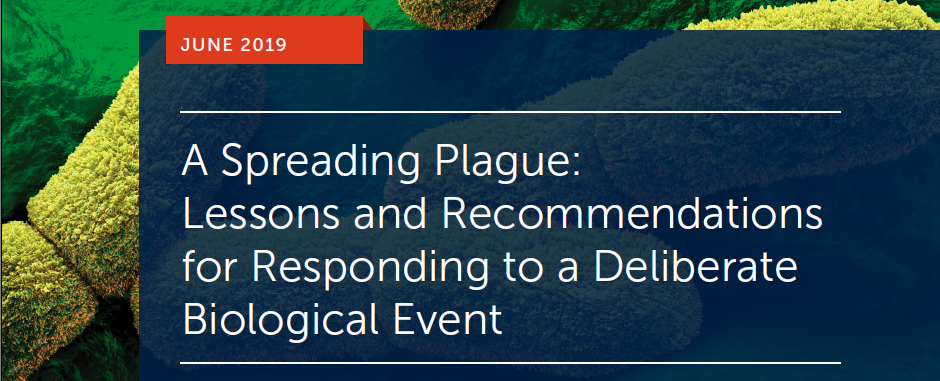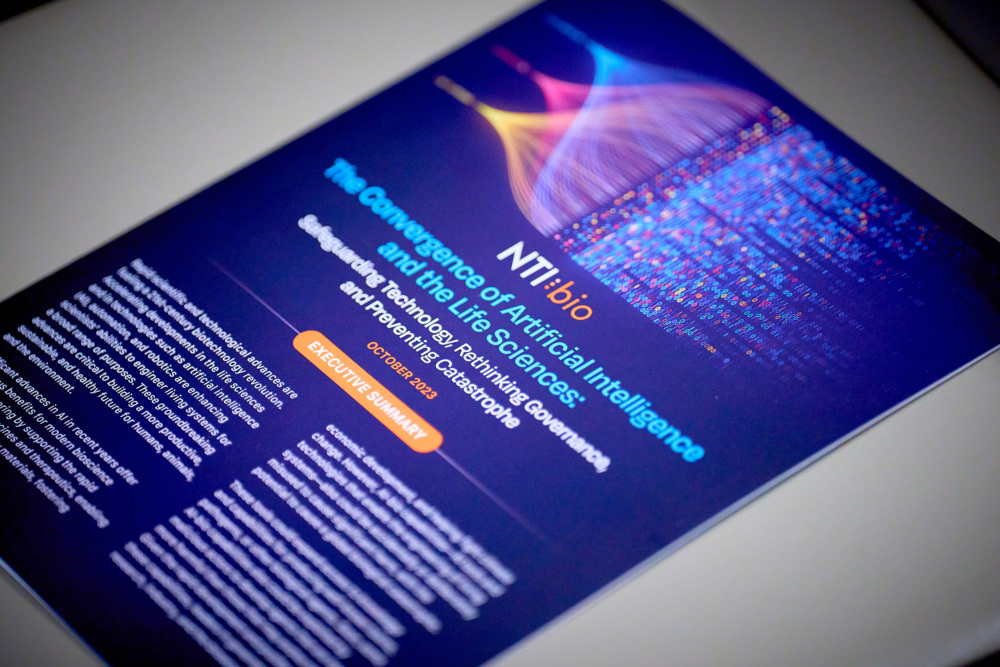
Michelle Nalabandian
Program Officer, Global Biological Policy and Programs
This NTI Paper, A Spreading Plague: Lessons and Recommendations for Responding to a Deliberate Biological Event, by Elizabeth Cameron (NTI), Rebecca Katz (Georgetown University’s Center for Global Health Science and Security), Jeremy Konyndyk (Center for Global Development), and Michelle Nalabandian (NTI) presents key findings and recommendations for urgent improvements to avoid catastrophic consequences of deliberate and other high-consequence biological events.
The risks of a global catastrophic biological event are growing, intensified by an increasingly interconnected world, terrorist and state interest in weapons of mass destruction, global political instability, and rapid advances in biotechnology. International leaders and organizations today are unprepared to react with the kind of effective, coordinated response needed to investigate and identify the pathogen, prevent the spread of disease, and, most importantly, save lives. Without the right procedures and tools in place, there’s little doubt that a rapidly spreading high-consequence biological event would place overwhelming stress on the people and institutions responsible for response. The lack of established procedures would very likely undermine the trust and cooperation needed between the health professionals, humanitarian responders, and security officials who would be aiming for a coordinated, effective international response.
To address this preparedness deficit, the Nuclear Threat Initiative, Georgetown University’s Center for Global Health Science and Security, and the Center for Global Development convened senior health, humanitarian, security, and political leaders to participate in a tabletop exercise designed to explore command, control, and coordination of an international response to an unusual and rapidly spreading biological event that began in the fictional country of “Vestia.” The dramatic exercise uncovered major gaps in international coordination, information sharing, and attribution between health and security officials. It sparked disagreements among leading experts over whether a permanent United Nations-based coordinator is needed to facilitate coordination among the various entities responsible for pandemic response. And it uncovered divisions over committing attention and resources to finding the perpetrators as a way to deter future attacks.
This report presents key findings from the tabletop exercise and offers recommendations from the event organizers, shaped around five emergent themes:
The report’s recommendations were informed by the discussion during the tabletop exercise but should not be attributed to the event participants.
Click here to learn more about the tabletop exercise.
Sign up for our newsletter to get the latest on nuclear and biological threats.
A new NTI | bio report released today on the sidelines of the Biological Weapons Convention Meeting of States Parties, “Strengthening Global Systems to Prevent and Respond to High-Consequence Biological Threats,” outlines actionable recommendations for the international community to bolster prevention and response capabilities for high-consequence biological events.
New report from NTI | bio offers recommendations for urgent actions that leaders within government, industry, the scientific community, and civil society should take to safeguard AI-bio capabilities.
Testimony of Jaime M. Yassif at U.S. House Hearing on "Strengthening Biosafety and Biosecurity Standards: Protecting Against Future Pandemics"


